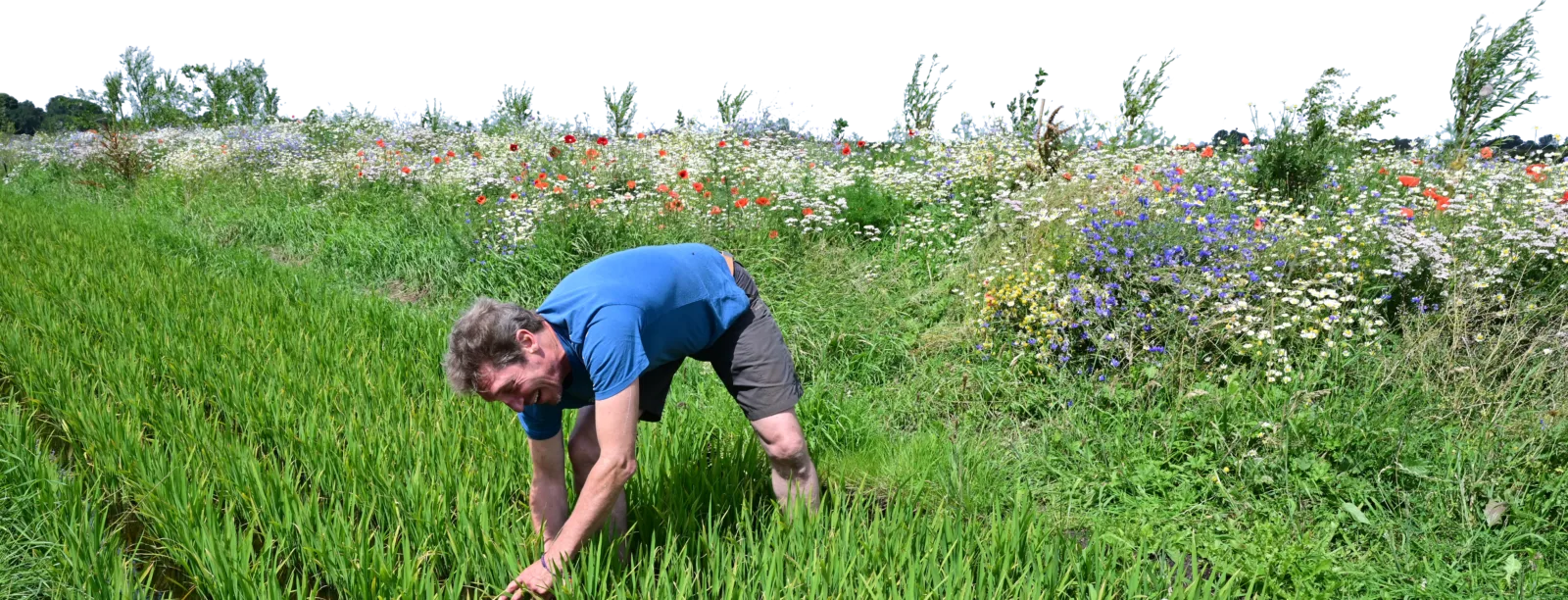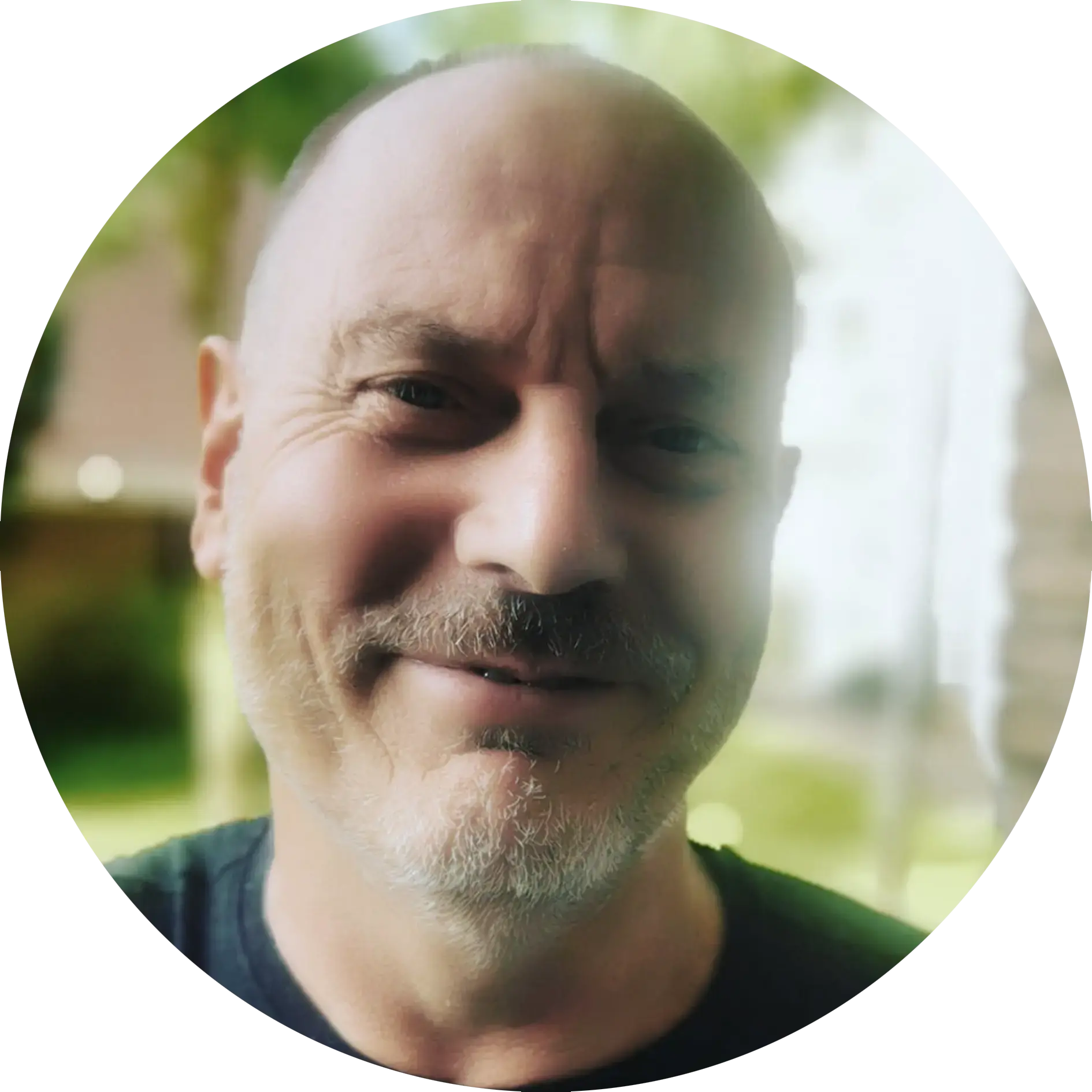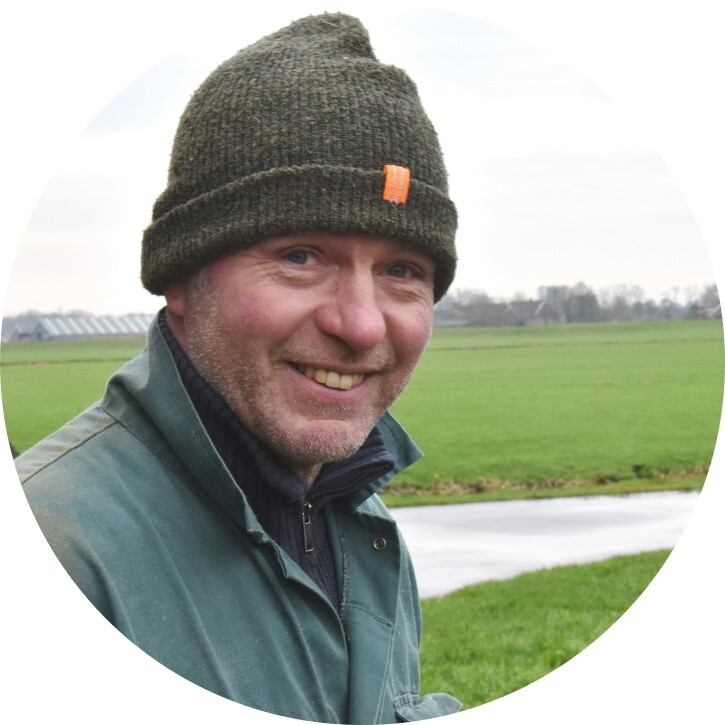Who are the farmers who lease land in the polderlab? You are not allowed to use pesticides and fertilisers there, nor is deep tillage allowed. Hence, it is organic farmers who work here. Sander and Kees tell you why.
Sander is a farmer of wet soil crops, especially rice and cranberry. He owns ‘Stichting De Buffelbes’, a food forest on peat. This silver buffaloberry from North America can also withstand wet soil, and so Sander will grow it along with apple, pear, hazel, sweetgale and dogwood.
Sander thinks his work is really important for the future. ‘With our work, we bring biodiversity back to the polderlab. And we ensure that the soil can retain water. This is desperately needed now that climate change is leading to more rainfall. As farmers, we have to make sure that we produce healthier food again, without fertiliser and pesticides.’


Kees grows edible aquatic plants. He is the initiator of Stichting Waterplant (Waterplant Foundation). Because edible aquatic plants have fallen into oblivion, he says. Kees wants to reintroduce crops such as pondweed, fringed water lily, water milfoil, waterweed and water soldier.
‘The water quality in the polderlab has improved tremendously by growing water soldier,’ says a proud Kees. ‘Water soldier is very tasty, it has a nutty flavour. You can stir-fry it in oil with a little garlic and pepper. And the plant is nice as a garnish on the plate.’
How can you turn a food marsh into a profitable model? This is what Coöperatie Voedselmoeras (Cooperation Food Marsh) is investigating in the polderlab. And not just in Oud Ade: The first food marsh has been created in The Hague and this cooperative is also setting up food marshes in other peatland areas.
So what exactly is a food marsh? It is a kind of agroforestry system with wet soil and aquatic plants. It is promising for peatland areas, where water management is a major issue. ‘With our cooperation, we want to contribute to the future of this peat meadow area by developing new forms of agriculture together,’ said participants Anne, Helene, Maarten and Suzanne.

Jan is an organic dairy farmer. His farm in the Vrouwe Vennepolder borders the polderlab, but he also leases a large part of Land van Ons' polderlab. Jan manages this part in consultation with Land van Ons and Leiden University - organically, of course.
Thanks to this collaboration, Jan has more land for his cows, but he is also happy to be able to contribute to solutions to the problems in the peat meadow area.